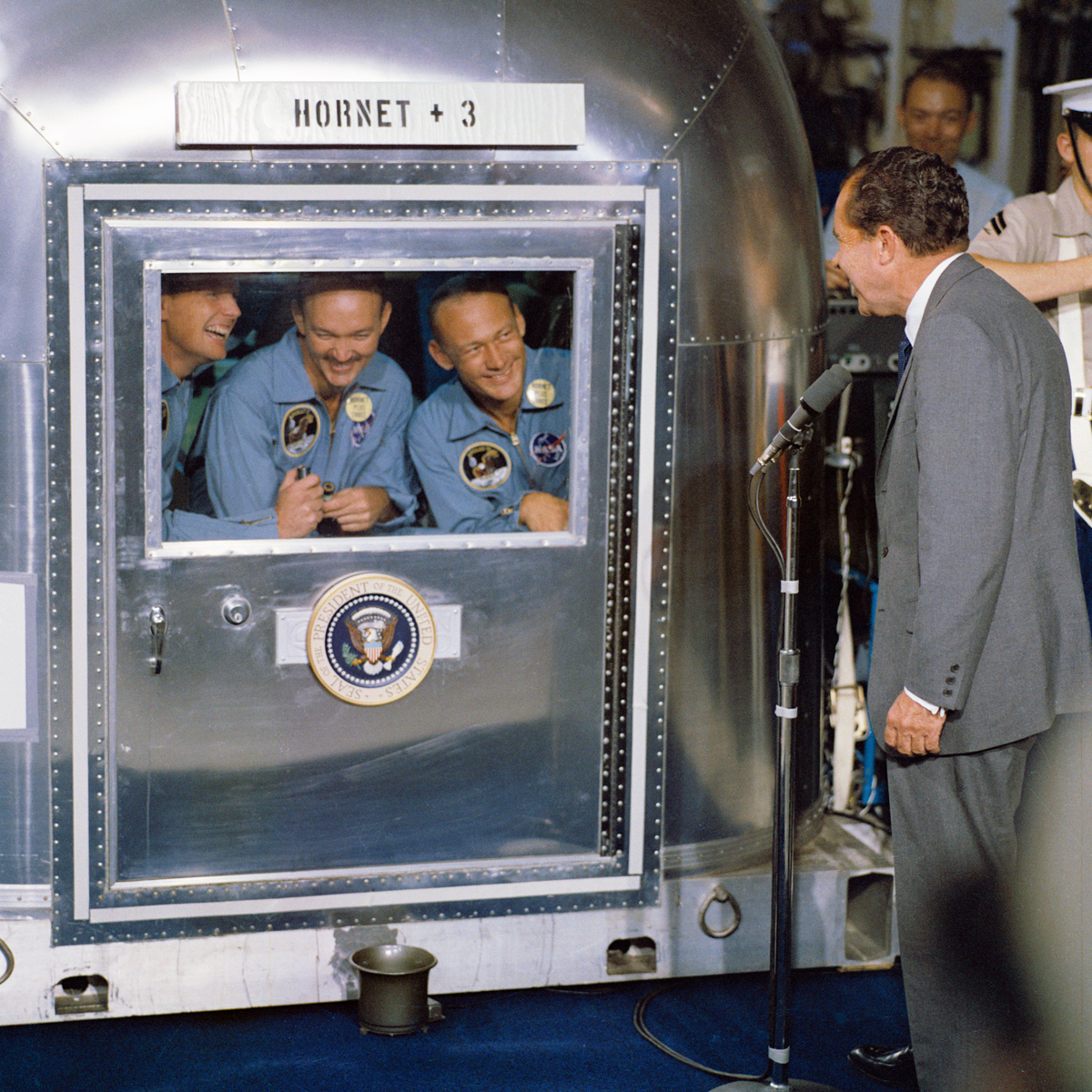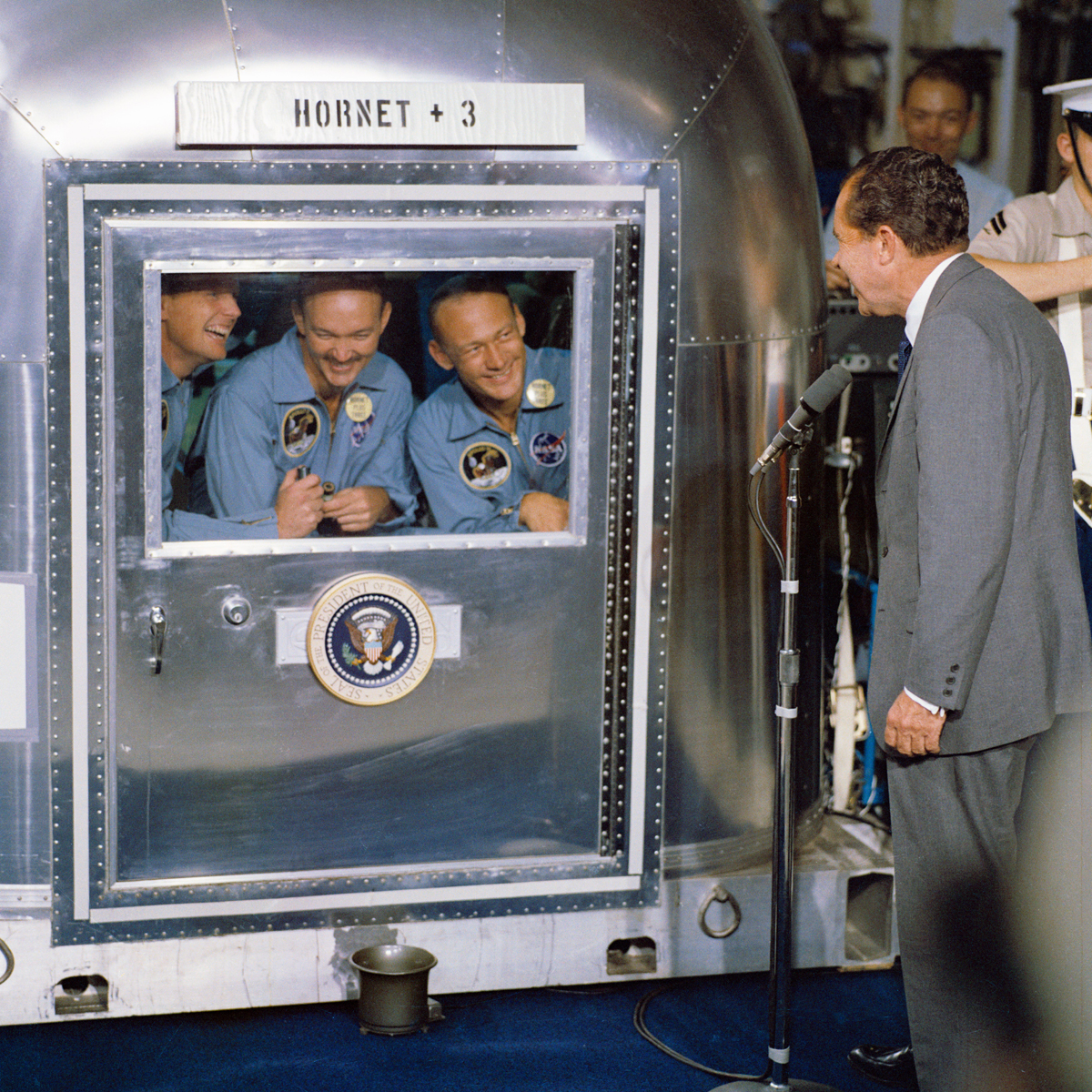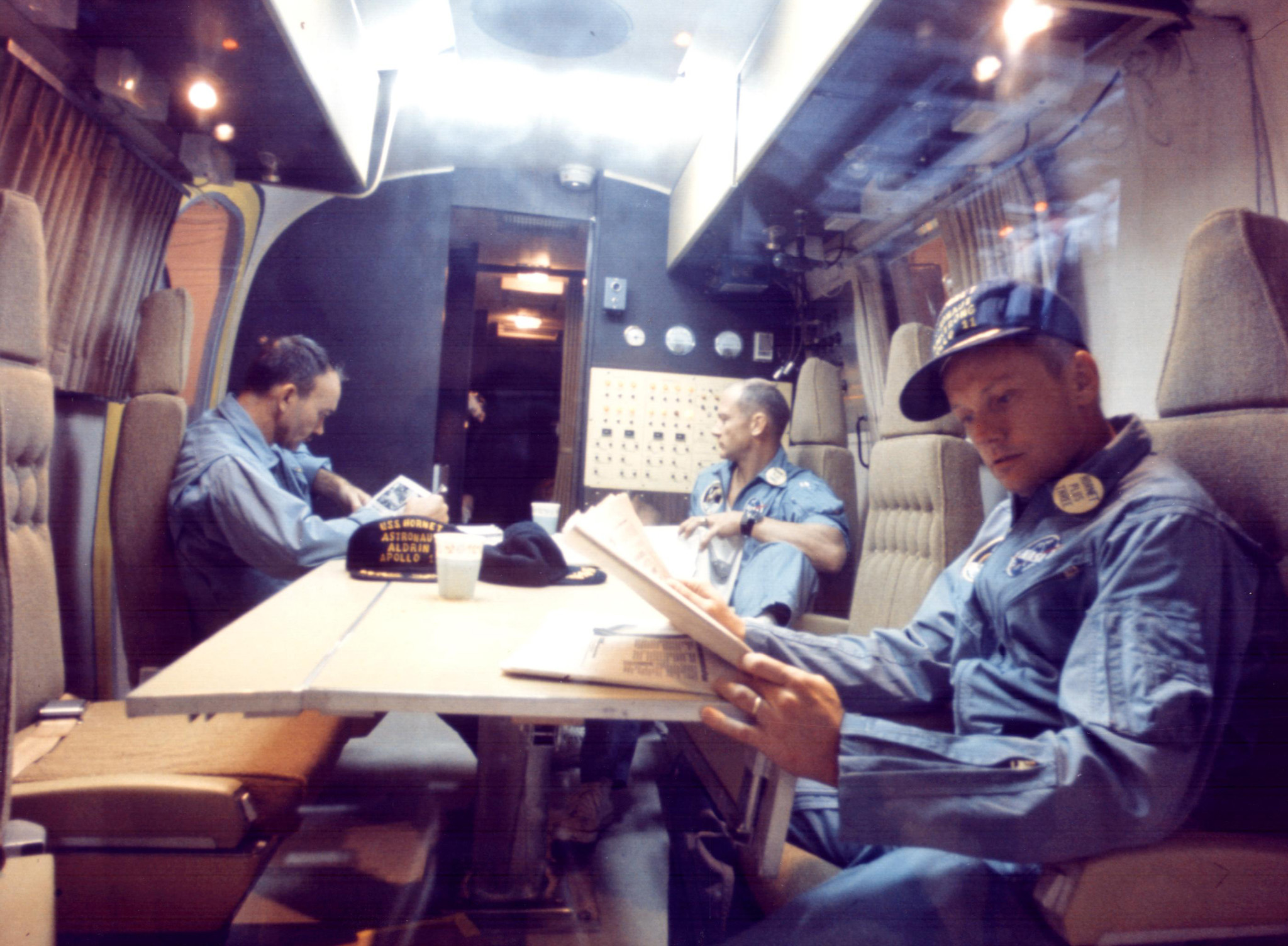
The current national—indeed, international—discussion around quarantines for suspected or confirmed ebola patients, and the supercharged emotions accompanying that conversation, got us thinking about what just might be the most famous quarantine in American history. In July 1969, after their safe return to earth, the Apollo 11 astronauts spent more than two weeks in quarantine, including several days and nights inside NASA’s Mobile Quarantine Facility, a converted Airstream trailer, on the very slim chance that they might have brought some sort of unknown contagion back with them from their lunar mission.
The two circumstances are not, of course, equivalent. Today, people are dying from ebola in frightening numbers, and the spread of the virus has health officials around the globe scrambling to contain it. The Apollo 11 crew, meanwhile, was comprised of three very healthy men who willingly submitted to the quarantine as one more logical step in the long, long mission that had, in a very real sense, begun years before.
Still, the photos of Armstrong, Collins and Aldrin at ease in quarantine—in fact, almost giddy with excitement—while interacting with family members and with the president are about as different in tone from the somber images of quarantined ebola patients as one is likely to find.
At the risk of oversimplifying, one might say that the difference resides in that place between certainty and doubt. For the astronauts in quarantine, the most intense part of their great adventure was over. For those suffering from, or those who might have contracted, ebola, the most intense part of their journey is just beginning.


More Must-Reads from TIME
- Donald Trump Is TIME's 2024 Person of the Year
- Why We Chose Trump as Person of the Year
- Is Intermittent Fasting Good or Bad for You?
- The 100 Must-Read Books of 2024
- The 20 Best Christmas TV Episodes
- Column: If Optimism Feels Ridiculous Now, Try Hope
- The Future of Climate Action Is Trade Policy
- Merle Bombardieri Is Helping People Make the Baby Decision
Contact us at letters@time.com